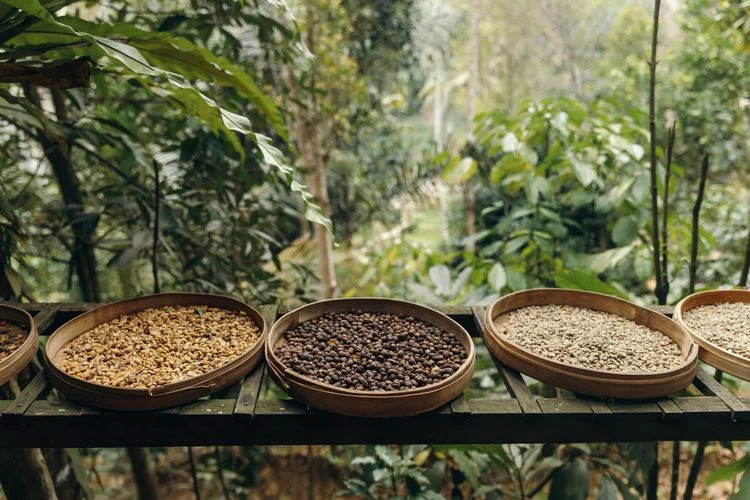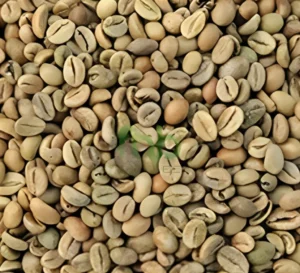Civet coffee indonesia, also known as Kopi Luwak, is a unique and highly prized coffee variety renowned for its distinctive taste and intriguing production process. Indonesia, with its rich biodiversity and coffee-growing heritage, has played a significant role in the history and development of Civet Coffee. In this article, we will explore the fascinating journey of Civet Coffee, from its origins to the meticulous production process, and its cultural and economic significance in Indonesia.
Also Read: Luwak Coffee Benefits: Buckle up, This Will Be A Long List!
The Origins of Civet Coffee Indonesia.
Civet coffee indonesia traces its origins back to the early 18th century when Dutch colonizers introduced coffee cultivation to the Indonesian archipelago. However, it was during the era of Dutch colonization that the unique process of Civet Coffee production was discovered. Local farmers noticed that Asian palm civets, small mammalian creatures, consumed coffee cherries and later excreted partially digested coffee beans. This discovery led to the birth of Civet Coffee, with Indonesia being at the forefront of its production.
Curiosity sparked further exploration, leading to the realization that the civet cats’ digestive enzymes interacted with the coffee beans during the digestion process. This interaction, combined with the fermentation that occurred in the civets’ digestive tract, resulted in distinct changes to the coffee beans’ composition and flavor profile.
Indonesia’s diverse ecosystems and fertile landscapes provide an ideal habitat for civet cats, contributing to the proliferation of Civet coffee production in the country. The coffee-growing regions of Sumatra, Java, Bali, and Sulawesi have become renowned for their high-quality Civet coffee.
The Civet Coffee Indonesia Production Process
The production process of Civet coffee, also known as Kopi Luwak, involves several meticulous steps that contribute to its unique flavor and highly sought-after status. Let’s delve into the intricacies of the Civet coffee production process:
- Selection of Coffee Cherries
Farmers carefully select only the finest and ripest coffee cherries for Civet coffee production. These cherries must be at their peak of flavor and quality to ensure the best results. - Consumption and Digestion by Civet Cats
The selected coffee cherries are fed to captive civet cats, primarily the Asian palm civet. These small mammals have a particular fondness for coffee cherries. Once consumed, the cherries go through the civets’ digestive system. - Harvesting of Civet Coffee Beans
After the civets have ingested the coffee cherries, the beans go through the digestive process. While in the civets’ stomach, enzymes interact with the beans, resulting in fermentation and chemical changes. The beans are then excreted in the civets’ feces. - Collection and Cleaning
The excreted coffee beans are collected from the civet cat feces, typically done manually. The beans are carefully sorted and meticulously cleaned to remove any impurities. - Fermentation and Processing
The collected coffee beans undergo a fermentation process, usually in a controlled environment. This fermentation stage helps develop the distinct flavors and characteristics that Civet coffee is known for. After fermentation, the beans are thoroughly washed and carefully dried. - Roasting
Once dried, the Civet coffee beans are ready for roasting. Roasting is a crucial step in bringing out the desired flavors and aromas. Experienced roasters carefully monitor the roasting process to ensure the beans reach the optimal level of roast. - Grinding and Brewing
After roasting, the beans are ground to the desired consistency, depending on the brewing method preferred by consumers. Civet coffee can be prepared using various brewing techniques such as drip brewing, French press, or espresso machines.
It should be noted that the Civet coffee indonesia production process necessitates rigorous attention to detail and experience at all stages. Because each batch of Civet coffee is quite tiny, there are only a limited number of them accessible on the market. This exclusivity, combined with the distinct flavor profile produced by the civets’ digestive process, leads to Civet coffee’s high value and popularity.

The Rise of Civet Coffee Indonesia
The rise of Civet coffee, also known as Kopi Luwak, in Indonesia has been characterized by increasing local and international demand, along with several challenges and considerations. Let’s explore these factors in more detail:
Local and international demand for Civet Coffee
Civet coffee’s distinct flavor profile and unusual production technique have piqued the interest of coffee connoisseurs all over the world. Civet coffee is highly sought after by connoisseurs and those looking for a one-of-a-kind coffee experience due to its scarcity and exclusivity. This rising demand has spurred the rise of Civet coffee in both domestic and international coffee markets.
Challenges faced by Civet Coffee producers
Despite rising demand, Civet coffee production creates a number of hurdles for growers. One key difficulty is the scarcity of Civet coffee. The production procedure is time-consuming and labor-intensive, with each civet generating only a little amount of beans. This scarcity raises the price of Civet coffee and creates logistical challenges in supplying the expanding market demand.
Certification and ethical concerns
The growing popularity of Civet coffee has sparked questions about the ethical treatment of civet cats used in the manufacturing process. There have been instances of animal welfare difficulties in the past, such as civets being kept in deplorable conditions. To address these concerns, certificates and norms for the ethical care of civet cats have been devised. These certifications confirm that the coffee beans were sourced properly, without jeopardizing the animals’ well-being.
Economic impact on local communities
Civet coffee manufacturing has had a substantial economic influence on local people in Indonesia’s coffee-growing regions. Farmers now have a vital source of income thanks to the increased demand for Civet coffee. Furthermore, the emergence of Civet coffee has boosted tourism in these areas, attracting people who want to see the production process firsthand and sample this distinctive coffee variety. This flood of tourists has helped to boost local economies and the development of linked businesses.
Civet coffee’s rise in Indonesia has been spurred by both domestic and international demand. While this provides economic opportunity for farmers and communities, it also raises issues such as limited supply and ethical problems. The industry aspires to secure the continuous expansion and sustainability of Civet coffee production by establishing certifications and encouraging responsible methods, benefiting both the local economy and the welfare of civet cats participating in the process.
Also Read: Do You Know? Fun Facts About Asian Palm Civet for You!
The Future of Civet Coffee
As we look ahead, several trends and opportunities emerge for Civet Coffee:
Emerging trends and innovations: Continued research and innovation in coffee production techniques can further enhance the quality and sustainability of Civet Coffee.
Market potential and growth opportunities: The growing appreciation for specialty and unique coffee varieties presents an optimistic outlook for Civet Coffee in the global market.
Sustainability initiatives and certifications: Increased focus on sustainability and certifications will further strengthen the reputation and demand for ethically produced Civet Coffee.
Conclusion
Civet Coffee, with its captivating history and meticulous production process, remains a cultural and culinary treasure in Indonesia. Its unique flavors and the dedication of farmers and producers have made it a prized delicacy worldwide. As the industry moves forward, it is crucial to maintain a balance between quality, sustainability, and the well-being of civet cats to preserve the legacy of Civet Coffee for future generations.




























 Arabic
Arabic Chinese (Simplified)
Chinese (Simplified) Dutch
Dutch English
English French
French German
German Indonesian
Indonesian Italian
Italian Japanese
Japanese Portuguese
Portuguese Russian
Russian Spanish
Spanish